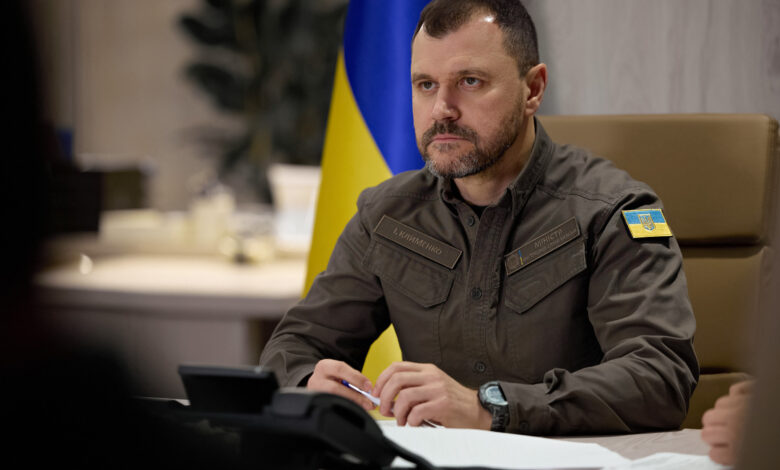How many police officers are at the front now, the rights of the CCC without their involvement: says Ihor Klymenko

The issue of the work of employees of territorial procurement centers (TCC) and their cooperation with law enforcement agencies remains extremely relevant for Ukrainian society. Citizens often question the legality of their actions by employees, especially in the context of document checks and mobilization measures. This causes a wide resonance, because trust in state institutions depends on the correctness and transparency of their actions. At the same time, many citizens ask why police representatives accompany TCC employees. These issues became the subject of discussion during interview Minister of Internal Affairs of Ukraine Ihor Klymenko for “RBK-Ukraine”.
“TCCs have sufficient legal grounds to act independently”
Minister of Internal Affairs Ihor Klymenko emphasized that the police work exclusively within the limits of their powers, focusing on the protection of public order. However, according to him, the TCC officers officially apply to the National Police with requests for escort in order to carry out their mobilization functions. Klymenko noted that, according to the legislation, the TCC has every right to independently check citizens’ documents and perform other tasks without the involvement of the police.
According to the minister, the question of whether the police should participate in the work of the TCC is rhetorical. Everything depends on the specifics of each region and the capabilities of the TCC. Klymenko emphasized that TCCs have sufficient legal grounds to act independently. At the same time, the police are involved in cooperation in those cases when the circumstances or specific regional conditions require it.
Klymenko also drew attention to the fact that individual cases of violations during mobilization receive significant publicity in society. According to him, this is being used by Russian propaganda to undermine mobilization measures in Ukraine. He acknowledged that some cases of abuse of authority do occur, but called them isolated. According to him, the military law enforcement service and the military command are making efforts to minimize such incidents.
The minister noted that recently no significant violations have been recorded, and the situation is stabilizing. Policemen, according to him, will continue to work together with representatives of the TCC, if it is necessary to ensure public order during the implementation of mobilization measures.
How many policemen are now at the front
Ukrainians have a claim against law enforcement officers – why aren’t they at the front themselves, if they call on others? Ihor Klymenko answered this question:
“We have units of the National Guard, border guards and the National Police on the frontline. Today there were two commanders of units of the NPU, units that have been directly in hell in the Defense Forces for several months. These are our special units, Fury, and combined units fighting alongside the National Guard.These are thousands of policemen.
As a percentage, it is 10%. About 10,000 policemen are combatants on the front line. 25,000 of us are constantly in the war zone. We are engaged in the evacuation of people, engaged in work at roadblocks. A wide range of work outside of police activity. 40-45 thousand are constantly in the war zone and near-front regions. And we are talking about border areas, where the State Border Service and police units are located.
We have the maximum number of people involved, but I would like to say that 25% of the 100,000 National Police are women. And 17% are those people who have not reached mobilization age. Now you can easily count the 45,000 I mentioned, 25,000 are women and 17% are those who have not reached the age of mobilization. That is, practically all forces of the National Police are involved. More than half of the National Guard is involved in combat missions and half of the State Border Service is involved.”
In addition, the Minister of Internal Affairs of Ukraine stated the need for legislative changes that would allow the police to forcibly evacuate children from combat zones. He explained that such an initiative is important to protect the lives of children who remain at risk in dangerous regions.





